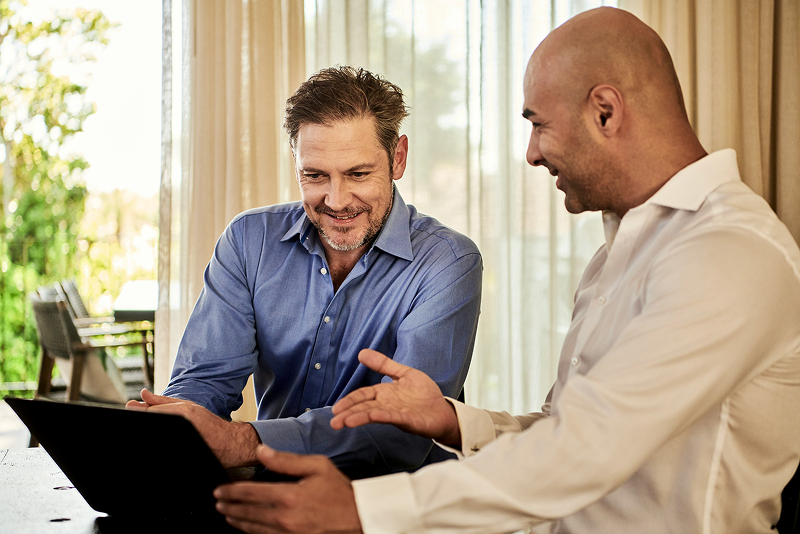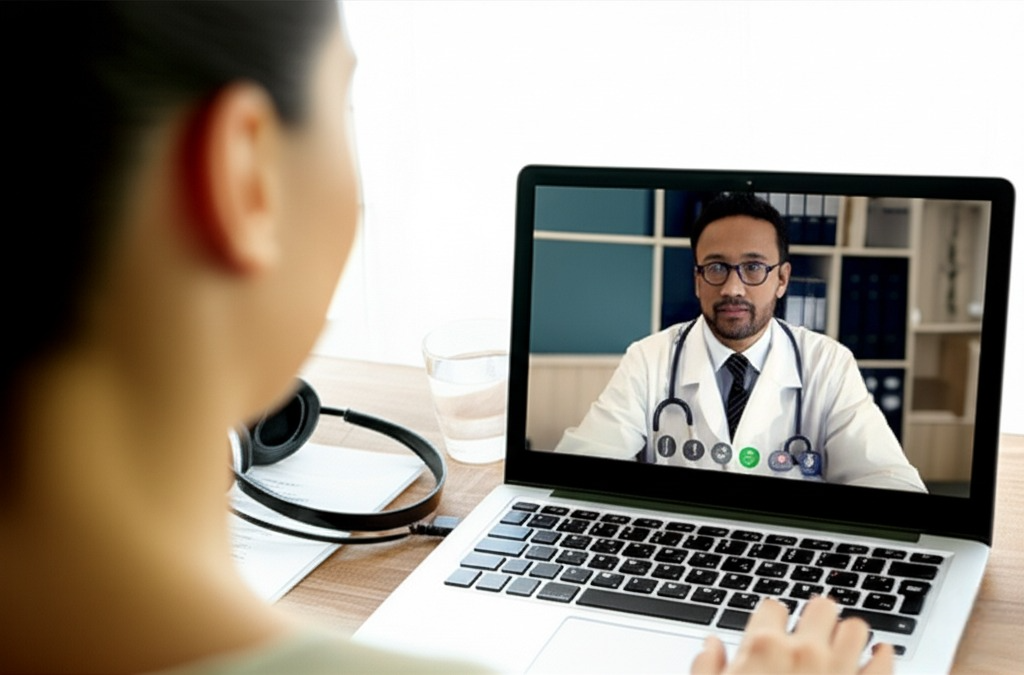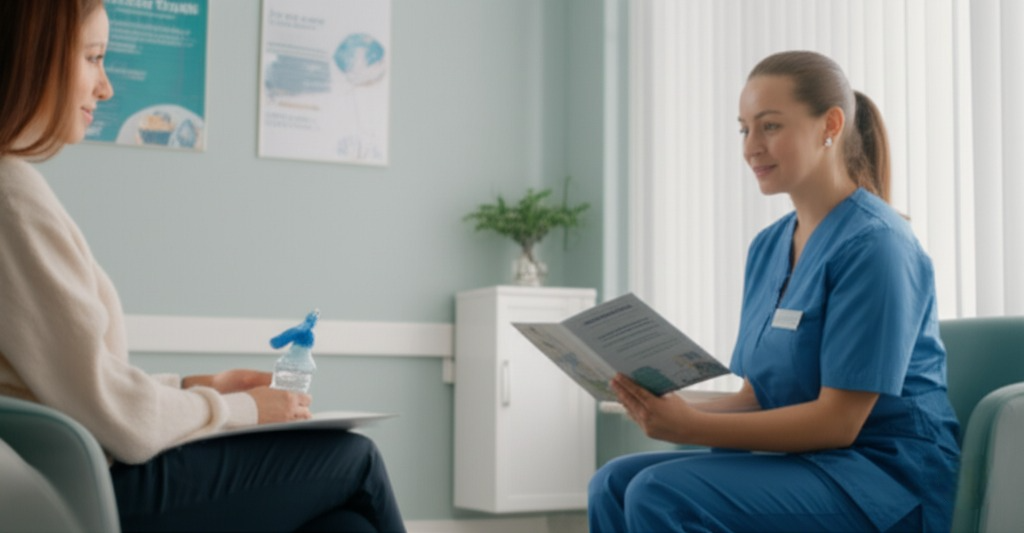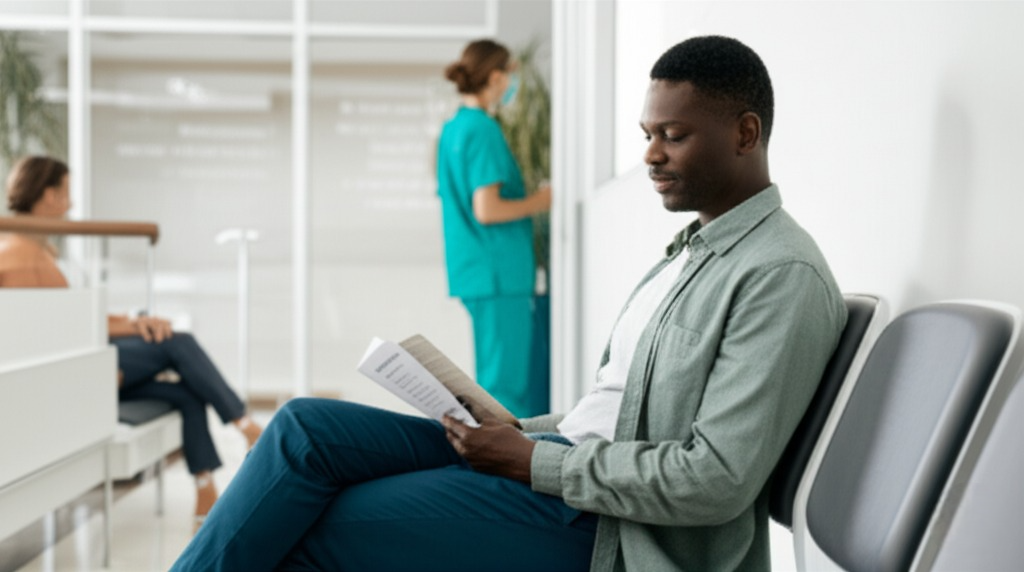Your digestive system plays a vital role in your overall health, yet certain conditions, particularly those affecting the colon, can develop silently. Colorectal cancer is a prime example, often showing no symptoms in its early, highly treatable stages. Diagnostic colonoscopy stands as the most effective tool for both screening and accurately diagnosing conditions of the large intestine. It offers an unparalleled direct view, allowing for the early detection and removal of precancerous polyps, ultimately providing invaluable peace of mind. In this comprehensive guide, we'll walk you through the essential preparation, what to expect during the procedure, and practical tips for a smooth recovery, ensuring the best possible outcomes for your colon health.
Understanding Diagnostic Colonoscopy
A diagnostic colonoscopy is a minimally invasive medical procedure that allows a gastroenterologist to examine the inside of your entire large intestine (colon) and rectum using a flexible, thin tube called a colonoscope. This instrument is equipped with a light and a high-definition camera, providing a clear, magnified view of the intestinal lining on a video monitor. The primary purposes of a diagnostic colonoscopy include:
- Colorectal Cancer Screening: It is the gold standard for detecting precancerous polyps, which can be removed during the procedure before they turn into cancer.
- Investigating Symptoms: Used to identify causes of unexplained abdominal pain, changes in bowel habits, rectal bleeding, or iron deficiency anemia.
- Monitoring: For individuals with a history of polyps or inflammatory bowel disease (IBD).
This procedure is crucial for both prevention and accurate diagnosis of various colon conditions.
Preparing for Your Colonoscopy
Proper and thorough bowel preparation is the most critical step for a successful colonoscopy, ensuring a clear view of the colon lining. Your doctor will provide detailed, specific instructions, but general guidelines include:
- Dietary Restrictions: Typically, you'll need to follow a clear liquid diet for 1-2 days before the procedure, avoiding solid foods, red/purple liquids, and pulp.
- Bowel Cleansing: You will be prescribed a laxative solution to drink, often in split doses, to completely empty your colon. Following these instructions precisely is essential.
- Medication Adjustments: Inform your doctor about all medications, especially blood thinners (e.g., aspirin, warfarin, NSAIDs) and diabetes medications, as they may need to be adjusted or temporarily stopped.
- Arrange Transportation: Due to sedation, you must arrange for a responsible adult to drive you home after the procedure and stay with you for the first 24 hours.
What to Expect During the Procedure
A diagnostic colonoscopy is performed as an outpatient procedure in a clinic or hospital setting.
- Sedation: You will receive sedation (ranging from conscious sedation to deeper sedation) to ensure your comfort and relaxation throughout the procedure. You will likely be drowsy and may not remember much.
- Positioning: You will be asked to lie on your left side.
- Insertion: The colonoscope is gently inserted into the rectum and advanced through the colon. Air is gently pumped through the scope to inflate the colon, allowing for a better view.
- Examination & Biopsy: The doctor carefully examines the lining of the colon as the scope is withdrawn. If polyps or suspicious areas are found, they can be removed (polypectomy) or biopsied (tissue samples taken) for further analysis.
- Duration: The actual procedure typically takes 20-60 minutes, depending on the extent of examination and any interventions performed.
- Monitoring: Your vital signs, including heart rate, blood pressure, and oxygen levels, will be continuously monitored by our experienced medical team.
“A diagnostic colonoscopy is more than just a procedure; it's a profound step towards safeguarding your future health. Early detection through this vital screening can literally save lives by preventing colorectal cancer before it even starts.”
— Dr. Sarah Chen, Board-Certified Gastroenterologist
Recovering from Your Colonoscopy
Recovery is generally quick, but it's important to allow the effects of sedation to fully wear off.
- Initial Recovery: You'll be monitored in a recovery area until you are fully awake and alert. You may experience some mild cramping or bloating due to the air introduced into the colon, which typically passes quickly.
- Resuming Activities: You should avoid driving, operating heavy machinery, or making important decisions for at least 24 hours post-sedation. Most patients can resume light daily activities the next day.
- Diet: You can usually resume your normal diet immediately after the procedure, unless otherwise advised by your doctor.
- Results: Your doctor will often provide preliminary findings immediately after the procedure. Results from biopsies or polyp removals will be available within several days.
The Benefits of Our Diagnostic Colonoscopy Services
- Gold Standard for Screening: The most effective method for colorectal cancer prevention and early detection.
- Polyp Removal: Allows for the removal of precancerous growths, preventing cancer development.
- Accurate Diagnosis: Provides definitive answers for a range of bowel symptoms and conditions.
- Minimally Invasive: Avoids the need for open surgery for diagnosis and many treatments.
- Peace of Mind: Offers reassurance through comprehensive examination of your colon health.
- Guaranteed Quality: All treatments are backed by our comprehensive guarantee for your complete assurance.
Your Next Steps for Diagnostic Colonoscopy
If you are aged 45 or older, have a family history of colorectal cancer or polyps, or are experiencing concerning bowel symptoms, a diagnostic colonoscopy may be recommended. Schedule a consultation with our specialized gastroenterology team to discuss your eligibility, prepare for the procedure, and take a proactive step towards protecting your digestive health.



























